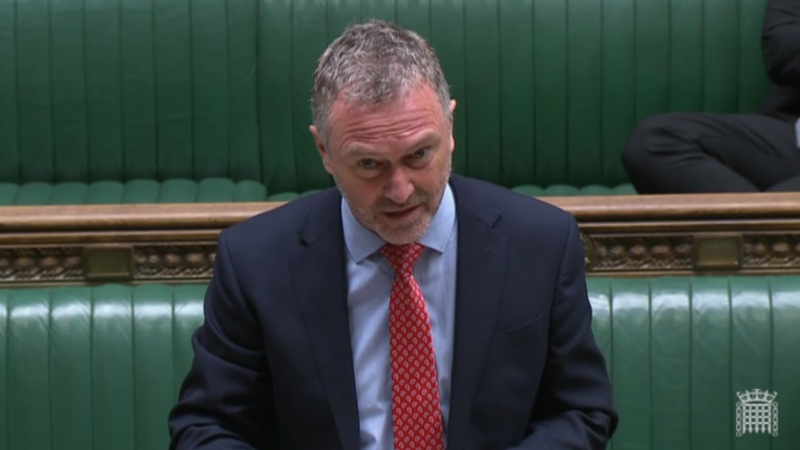
Steve Reed has warned that the UK is facing a “Tory winter of discontent” as the government rejected Labour’s opposition day motion to abandon policies that it says place an “avoidable and unacceptable burden on working people”.
The motion, which was rejected by MPs this evening by 300 votes to 222, highlighted the impact of the Universal Credit cut, tax rises, spiralling childcare costs and private rents, rising energy bills and other costs.
The Shadow Communities and Local Government Secretary said the Tories were going to “clobber” families with a “triple tax whammy” between increases to council tax and National Insurance contributions and the freezing of income tax allowance.
“They just can’t help themselves. They’re Tory tax-oholics. Their inflation-busting council tax rise earlier this year hit families in the pocket with the economy struggling to recover after the worst crisis of any major economy,” he said.
“Their council tax hike next year lands on people door mats after a winter of rising inflation and rising energy prices. The average band D council tax rate looks set to top £2,000 a year by 2024.”
Labour has repeatedly urged the government to provide more money to councils to fund costs caused by the pandemic instead of forcing authorities to implement a near-mandatory hike in council tax this April to make up for lost funding.
It was announced last year that English local authorities would be allowed to raise council tax by an extra 5%, including 3% for adult social care. Labour highlighted at the time that the hike was over twice the rate of inflation.
Reed added this evening: “This country faces a Tory winter of discontent. Working families are facing a squeeze in their living standards they simply can’t afford all because of the bad choices, broken promises and sheer crass incompetence of this failing Conservative government.”
The Universal Credit uplift was introduced during the first wave of Covid, raising the standard rate for a single, over-25 claimant from £317.82 to £409.89 a month. Theresa Coffey confirmed in July that it would not be extended beyond the autumn.
Ministers have suggested that the withdrawal is part of a push to get people into work, despite the latest Department for Work and Pensions figures showing that almost 40% of people on the benefit are in employment.
Labour tabled another opposition day motion calling on the government to scrap its planned cut to Universal Credit and Working Tax Credits last week. It passed by 253 votes to zero against as Conservative MPs were instructed to abstain.
Opposition day motions are not binding on the government. Boris Johnson has taken to ignoring the votes in the same way his predecessor Theresa May did during her time as Prime Minister, though Johnson has a majority of 80 in the Commons.
Ed Miliband again demanded that ministers cancel their “terrible decision on Universal Credit” and abandon plans to press ahead with a £20-per-week reduction in the benefit in light of rising energy prices earlier this week.
Boris Johnson announced his long-awaited plan for social care last week, which involves raising a £12bn-a-year levy with a 1.25 percentage-point increase in National Insurance. The government has said the cash will be used to tackle the healthcare backlog caused by Covid before the rest is directed towards social care.
Keir Starmer has stated his preference for funding for the NHS and social care to be raised through income from assets, saying that Labour would raise the cash in a “broader way where those with the broadest shoulders pay their fair share”.
The health and social care levy completed the legislative stages in the House of Commons last week. 307 MPs backed the bill at third reading last night, compared to 251 who voted against the tax increase.
Below is the full text of the motion tabled by Labour today.
Keir Starmer
Angela Rayner
Bridget Phillipson
Steve Reed
Thangam Debbonaire
Sir Alan Campbell
That this House is concerned about the negative impact of government policy on the finances of working people, with a growing squeeze on living standards caused by the £1,040 per year reduction to Universal Credit, the rise in National Insurance contributions for low- and middle-income workers, increases in council tax, the freezing of the personal income tax allowance from April 2022, the increasing cost of household energy bills, the highest petrol prices since 2013 and the potential for the largest rail fare increase in a decade, the fastest rise in private rental prices since 2008, successive above inflation increases in childcare costs, and rising prices resulting from the supply chain disruption caused by worker and supply shortages; and calls on the government to change the direction of its policies on these issues because they have created an avoidable and unacceptable burden on working people.




More from LabourList
‘Labour’s quiet quest for democratic renewal’
‘Labour promised to make work pay. Now it must deliver for young people’
‘Council Tax shouldn’t punish those who have the least or those we owe the most’